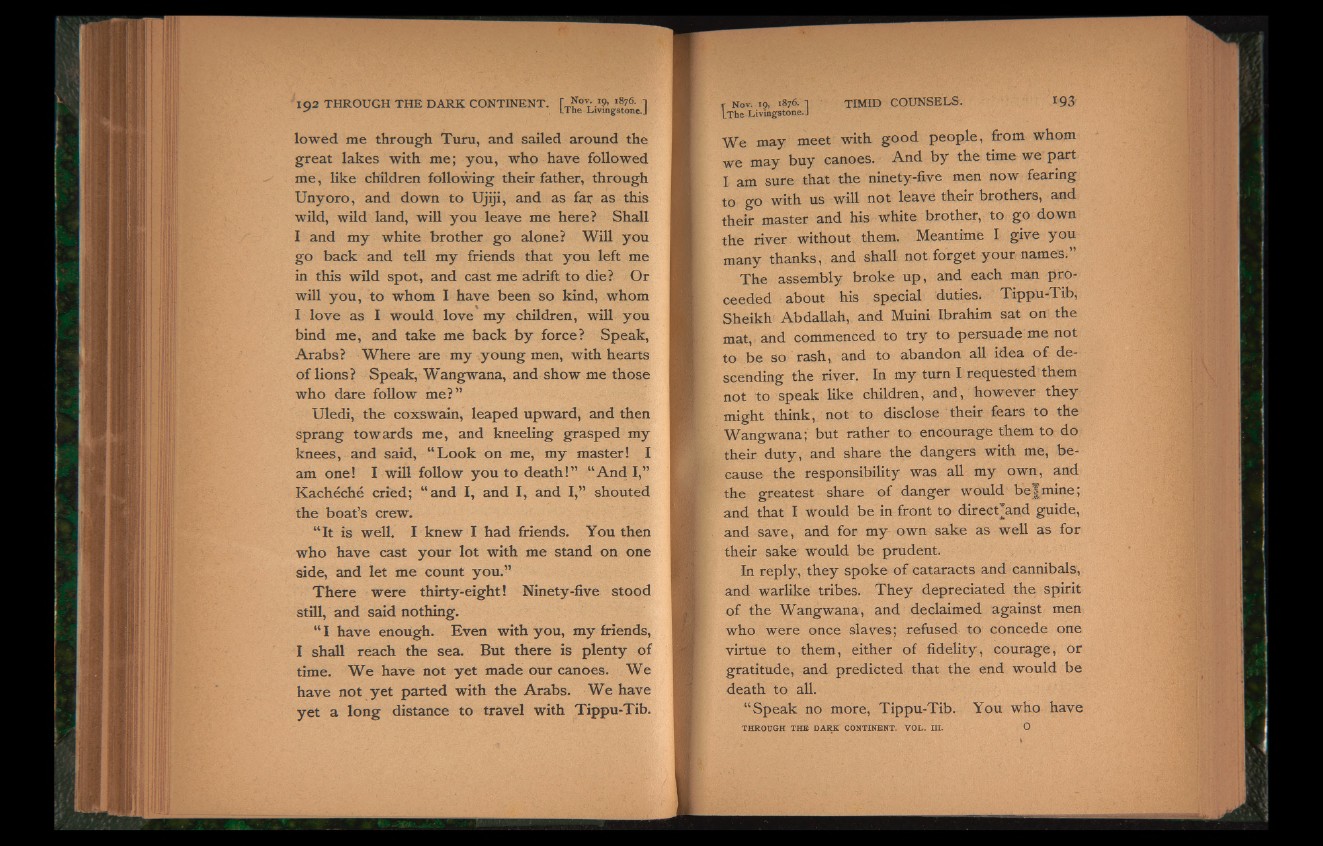
lowed me through Turu, and sailed around the
great lakes with me; you, who have followed
me, like children following their father, through
Unyoro, and down to Ujiji, and as far as this
wild, wild land, will you leave me here? Shall
I and my white brother go alone? Will you
go back and tell my friends that you left me
in this wild spot, and cast me adrift to die? Or
will you, to whom I have been so kind, whom
I love as I would love my children, will you
bind me, and take me back by force? Speak,
Arabs? Where are my young men, with hearts
of lions? Speak, Wangwana, and show me those
who dare follow me?”
Uledi, the coxswain, leaped upward, and then
sprang towards me, and kneeling grasped my
knees, and said, “ Look on me, my master! I
am one! I will follow you to death!” “And I,”
Kacheche cried; “ and I, and I, and I,” shouted
the boat’s crew.
“ It is well. I knew I had friends. You then
who have cast your lot with me stand on one
side, and let me count you.”
There were thirty-eight! Ninety-five stood
still, and said nothing.
“ I have enough. Even with you, my friends,
I shall reach the sea. But there is plenty of
time. We have not yet made our canoes. We
have not yet parted with the Arabs. We have
yet a long distance to travel with Tippu-Tib.
r Nov. 19, 1876- I TIMID COUNSELS. r93 LThe Livingstone. J
We may meet with good people, from whom
we may buy canoes. And by the time we part
I am sure that the ninety-five men now fearing
to go with us will not leave their brothers, and
their master and his white brother, to go down
the river without them. Meantime I give you
many thanks, and shall not forget your names.”
The assembly broke up, and each man proceeded
about his special duties. Tippu-Tib,
Sheikh Abdallah, and Muini Ibrahim sat on the
mat, and commenced to try to persuade me not
to be so rash, and to abandon all idea of descending
the river. In my turn I requested them
not to speak like children, and, however they
might think, not to disclose their feats to the
Wangwana; but rather to encourage them to do
their duty, and share the dangers with me, because
the responsibility was all my own, and
the greatest share of danger would be J mine;
and that I would be in front to direct'and guide,
and save, and for my own sake as well as for
their sake would be prudent.
In reply, they spoke of cataracts and cannibals,
and warlike tribes. They depreciated the spirit
of the Wangwana, and declaimed against men
who were once slaves; refused to concede one
virtue to them, either of fidelity, courage, or
gratitude, and predicted that the end would be
death to all.
“ Speak no more, Tippu-Tib. You who have
t h r o u g h t h e DARK CONTINENT. VOL . III. 0